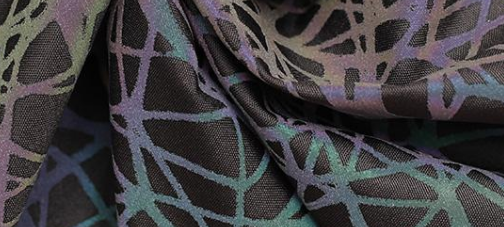Key tasks for development in the 14th Five-Year Plan
(5) Promote industry fashion development and brand building
1. Promote the deep integration of culture and industry. Based on the consumption upgrading needs of the domestic market, the integration of intangible cultural heritage and other excellent traditional Chinese culture, contemporary aesthetics and fashion trends, improve the level of textile fashion creativity and product design, and form a number of textile and garment independent brands with national cultural significance.

2. Improve product innovation ability. Strengthen the research on fashion trends and the design and application of new materials and technologies in terminal products, and improve the R&D system of the whole industry chain from fiber raw materials to terminal products. Promote customized services, and promote the transformation of the traditional manufacturing model into a service-oriented manufacturing model. Increase the development of smart wear, green health, and composite functional products.
3. Promote innovation in business forms and models. Actively use the new generation of information technology to establish a deep connection between brands and consumers, and form a smart marketing model based on digital decision-making. Actively explore new models and new business forms, and promote the cross-border integration and development of textile and garment brand enterprises with the Internet industry and modern service industry through platform integration, community integration and scene integration.
4. Strengthen brand nurturing services. Integrate the resources of the government, industry associations, colleges and institutions, carry out theoretical research on textile and garment brand development, brand value evaluation system research, and continue to carry out brand value evaluation and promotion activities. The use of national brand activities and other public service platforms to strengthen the promotion of independent brands in the textile industry. Through exhibitions, fashion weeks, design competitions, etc., to build a platform for brand construction exchange and display.
6. Promoting social responsibility and sustainable development
1. Promote energy-saving and low-carbon development. Promote the optimization and upgrading of the energy structure, continue to increase the proportion of secondary energy consumption, encourage enterprises to purchase green electricity, and support qualified parks or enterprises to accelerate the construction of distributed energy centers. We will strictly control the construction of projects with high energy consumption and high pollution emissions, and actively yet prudently promote the retirement and upgrading of outdated and excess production capacity. We will launch a special campaign to improve energy efficiency in key energy-using enterprises. Encourage cotton spinning, chemical fiber, printing and dyeing industries to implement energy efficiency leaders to lead the action, the implementation of intelligent energy management pilot demonstration. Accelerate the development, demonstration and promotion of low-carbon technologies such as green fiber preparation, energy-efficient printing and dyeing equipment, and waste fiber recycling. Encourage research on standards and regulatory systems such as carbon accounting methodology, emission reduction roadmap, and emission reduction cost analysis.
2. Strengthen clean and safe development. Drive all links of the industrial chain with green technology to reduce the emission of polluting products, and deepen the systematic pollution prevention and control of the whole production process and textile parks. We will attach great importance to the discharge of emerging pollutants and toxic and harmful pollutants, step up efforts to upgrade cleaner production, and continue to cut emissions of chemical oxygen demand, ammonia nitrogen and other polluting products. Improve the upgrading of environmental infrastructure in textile parks and the construction of supporting pipe networks, promote the recycling of water resources and sewage resources, support the industrialization demonstration project of unconventional water resources utilization, and promote the integration and optimization of water systems in textile parks and key enterprises. Strengthen the substitution of toxic and harmful substances, and strictly control the use of chemicals such as dyeing and chemical additives.
3. Promote the development of recycling. Accelerate the circular transformation and upgrading of existing textile parks, reasonably extend the industrial chain and circular links. Accelerate the construction of waste textile and garment resource recycling system, promote the cluster, park and regional collaborative layout of waste fiber reuse enterprises, and carry out the construction of demonstration bases for the comprehensive utilization of waste textile and garment. Break through the key technology of large-scale production of recycled polyester and waste textile and garment recycling, open up the process route of bottle flake direct spinning recycled polyester filament, and strengthen directional recycling, cascade utilization and standardized treatment. Accelerate the integrated development of the Internet and resource recycling, and establish a recycling network that integrates online and offline.
- ABB
- General Electric
- EMERSON
- Honeywell
- HIMA
- ALSTOM
- Rolls-Royce
- MOTOROLA
- Rockwell
- Siemens
- Woodward
- YOKOGAWA
- FOXBORO
- KOLLMORGEN
- MOOG
- KB
- YAMAHA
- BENDER
- TEKTRONIX
- Westinghouse
- AMAT
- AB
- XYCOM
- Yaskawa
- B&R
- Schneider
- Kongsberg
- NI
- WATLOW
- ProSoft
- SEW
- ADVANCED
- Reliance
- TRICONEX
- METSO
- MAN
- Advantest
- STUDER
- KONGSBERG
- DANAHER MOTION
- Bently
- Galil
- EATON
- MOLEX
- DEIF
- B&W
- ZYGO
- Aerotech
- DANFOSS
- Beijer
- Moxa
- Rexroth
- Johnson
- WAGO
- TOSHIBA
- BMCM
- SMC
- HITACHI
- HIRSCHMANN
- Application field
- XP POWER
- CTI
- TRICON
- STOBER
- Thinklogical
- Horner Automation
- Meggitt
- Fanuc
- Baldor
- SHINKAWA
- Other Brands




































































































































